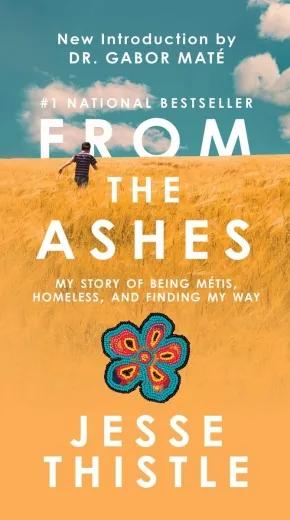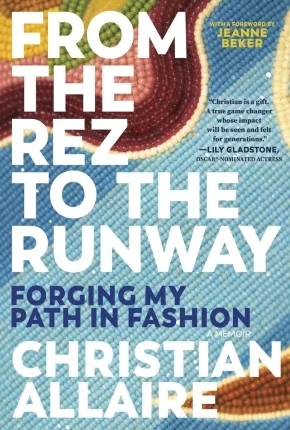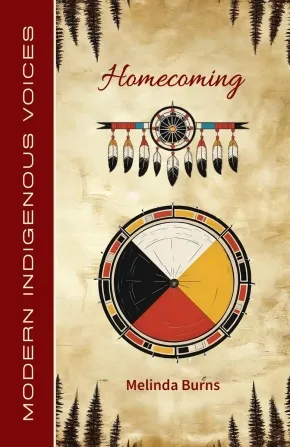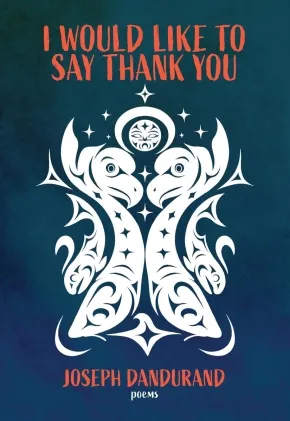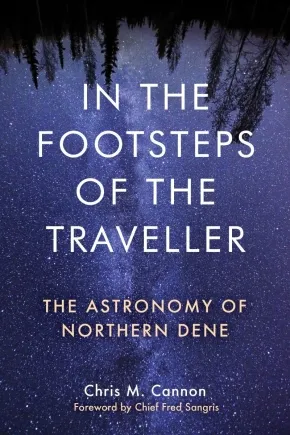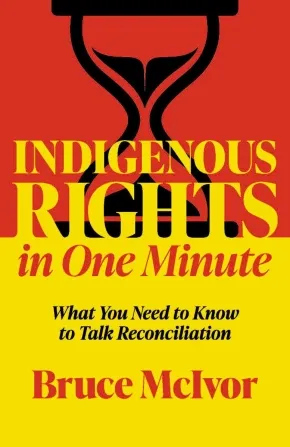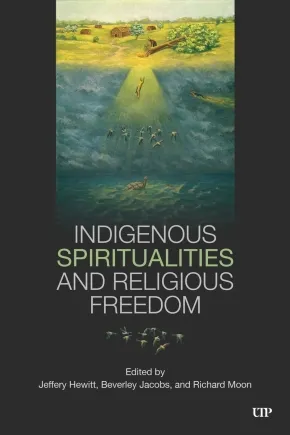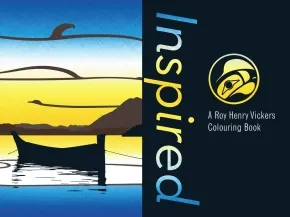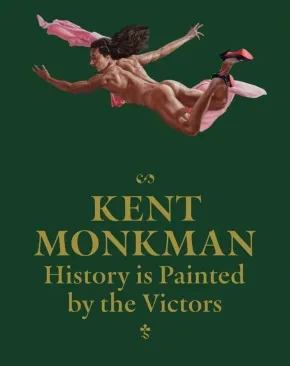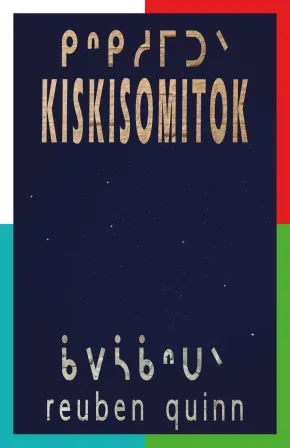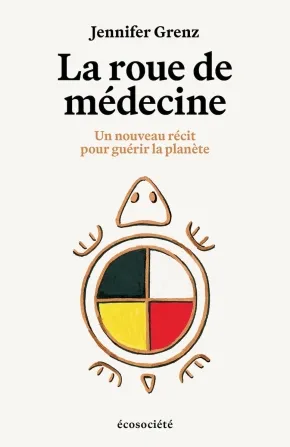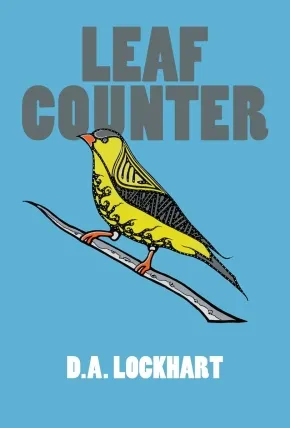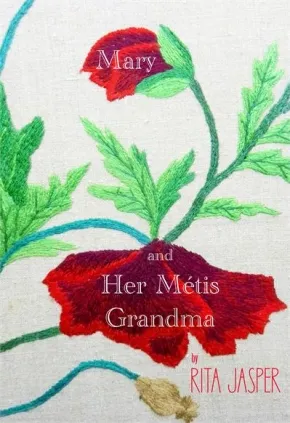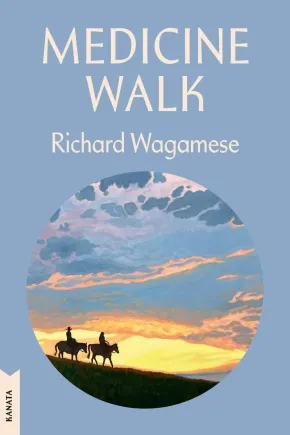
First Nations
31
-
45
of
801 Results;
Sort By
Go To
of 54
From the Ashes: My Story of Being Métis, Homeless, and Finding My Way (PB)
$13.99
Format:
Paperback
Text Content Territories:
Indigenous Canadian; First Nations; Cree (Nehiyawak); Métis;
Reading Level: N/A
ISBN / Barcode: 9781668213728
Synopsis:
Synopsis:
In this extraordinary and inspiring debut memoir, Jesse Thistle, once a high school dropout and now a rising Indigenous scholar, chronicles his life on the streets and how he overcame trauma and addiction to discover the truth about who he is.
If I can just make it to the next minute... then I might have a chance to live; I might have a chance to be something more than just a struggling crackhead.
From the Ashes is a remarkable memoir about hope and resilience, and a revelatory look into the life of a Métis-Cree man who refused to give up.
Abandoned by his parents as a toddler, Jesse Thistle briefly found himself in the foster-care system with his two brothers, cut off from all they had known. Eventually the children landed in the home of their paternal grandparents, but their tough-love attitudes meant conflicts became commonplace. And the ghost of Jesse’s drug-addicted father haunted the halls of the house and the memories of every family member. Struggling, Jesse succumbed to a self-destructive cycle of drug and alcohol addiction and petty crime, spending more than a decade on and off the streets, often homeless. One day, he finally realized he would die unless he turned his life around.
In this heartwarming and heartbreaking memoir, Jesse Thistle writes honestly and fearlessly about his painful experiences with abuse, uncovering the truth about his parents, and how he found his way back into the circle of his Indigenous culture and family through education.
An eloquent exploration of what it means to live in a world surrounded by prejudice and racism and to be cast adrift, From the Ashes is, in the end, about how love and support can help one find happiness despite the odds.
Awards
- 2020 Indigenous Voices Awards Winner for Published Prose in English
- Winner, Kobo Emerging Writer Prize Nonfiction
- Winner, High Plains Book Awards
- An Indigo Book of the Year
Reviews
“From the Ashes hits you like a punch in the gut. It’s an unflinching, heartrending and beautifully written story of survival against seemingly impossible odds. But it’s also a book that should make you furious. Thistle paints a vivid portrait of a country seemingly incapable of doing right by Indigenous youth or by those struggling with homelessness, addiction and intergenerational trauma. That he survived to tell this story is truly a miracle. Still, one question haunts me after finishing this powerful and devastating book: How do we ensure that the next generation isn’t forced to navigate a broken system that takes their lives for granted and fails them at every turn? My greatest hope, then, is that From the Ashes will be the wakeup call Canada needs.” — IAN MOSBY, historian and author of Food Will Win the War
Educator Information
Caution: Deals with mature subject matter.
Additional Information
368 pages | 6.00" x 9.00"
From the Rez to the Runway: Forging My Path in Fashion
$24.99
Format:
Paperback
Text Content Territories:
Indigenous Canadian; First Nations; Anishinaabeg; Ojibway; Nipissing First Nation;
Reading Level: N/A
ISBN / Barcode: 9781443470629
Synopsis:
Synopsis:
Growing up on the Nipissing First Nation reserve in Northern Ontario, Christian Allaire wanted to work in the fashion industry, a future that seemed like a remote, and unlikely, dream
He was first introduced to style and design through his culture’s traditional Ojibwe powwow regalia—ribbon skirts, beaded belts, elaborate headdresses. But as a teenager, he became transfixed by the high-fashion designs and runway shows that he saw on Fashion Television and in the pages of Vogue.
His unwavering interest in fashion led him to complete a journalism degree so he could pursue his goal of becoming a full-time fashion writer. After landing his first big magazine job in New York City, Allaire found himself working at the epicentre of the international fashion industry. His dream had come true. Yet he soon realized the fashion world—and his place in it—wasn’t always quite as glamorous as he imagined it would be.
From grinding as an unpaid intern, to becoming a glitzy (but overworked) fashion editor, Allaire writes with feeling about the struggle to find his place—and community—in the highly exclusive world of fashion. And he recounts, with great candour, the difficulty of balancing his ambitions with the often-inaccurate perceptions—including his own—of his culture’s place in the realm of fashion.
Full of joy, honesty, adversity, and great clothes, From the Rez to the Runway is a gripping memoir about how to achieve your dreams—and elevate others—while always remaining true to yourself.
Reviews
“Christian is a gift. He embodies the precious intersection between arts and advocacy, and is a truly grounded and inspired human being. In having such a curated, unique and sharp eye for both classic and cutting edge design, coupled with an unshakable commitment to elevating Indigenous designers, he has carved a necessary space which elevates Indian Country and the world of fashion as a whole. A true game changer whose impact will be seen and felt for generations.” — Lily Gladstone, Oscar-nominated actor
Funny, honest and utterly charming, From the Rez to the Runway lends the cliche fashion editor origin story a refreshing new perspective. With a true sense of passion and wide-eyed wonder, Christian Allaire pursues his personal quest for creativity, purpose and self-discovery and finds that staying true to one’s self brings the greatest rewards. Brimming with moving family memories from the reservation and hilarious fashion misadventures alike, the book is a must-read for all the so-called outsiders and misfits who’ve ever dared to follow their dreams. — Chioma Nnadi, Head of Editorial Content, British Vogue
From beadwork to Burberry, Christian Allaire is a force in fashion. He paints a portrait of a complicated industry rarely seen behind the scenes — let alone traversed by Indigenous writers. In this compelling and inspiring memoir, Allaire details how he carries community with him through every glass ceiling he shatters. His work, and this memoir, are a triumph. After all, ‘Don’t mess with a rez kid.’ — Devery Jacobs, Filmmaker and Actor, Reservation Dogs
There is a new generation of Fashion Transformers and Christian Allaire is leading the movement. Allaire has been chosen by spirit to shine a light on Indigenous Fashion and Art, and he has done so at the highest levels, from New York to Paris, and all around the world. He is a door opener for the truth, power, and beauty of true fashion and its creators. — Kelly Cutrone, founder of People’s Revolution and New York Times bestselling author
Additional Information
272 pages | 6.00" x 9.00" | Paperback
Gino: The Fighting Spirit of Gino Odjick
$36.00
Format:
Hardcover
Text Content Territories:
Indigenous Canadian; First Nations; Anishinaabeg; Algonquin; Kitigan Zibi Anishinabeg;
Reading Level: N/A
ISBN / Barcode: 9781778402708
Synopsis:
Synopsis:
From veteran hockey reporter Patrick Johnston and Gino’s longtime friend Peter Leech comes the authorized biography of Gino Odjick.
In the 1980s and ’90s, National Hockey League games were very different from the nimble, skill-focused displays we see today. One of the greatest differences—and one of the sport’s more popular facets at the time—was the widespread presence of “enforcers”: hulking, battle-scarred players whose main task was to police the sport by chasing down and brawling with opponents who had broken unwritten codes determining which aspects of violence counted as dishonorable or unjustified.
When hard-hitting Vancouver Canucks player Gino Odjick emerged in the early 1990s, he quickly became one of the game’s most feared enforcers and revered teammates, a sign of a new era for the team, racking up 296 penalty minutes in the 45 games he played in his rookie season. Hailing from Kitigan Zibi, an Algonquin community near Maniwaki, Quebec, Gino was one of the few Indigenous players in the NHL at the time. But it was Gino’s ferocious play contrasted by his genuinely affable and openhearted personality off the ice that won him a special place in the hearts of Canucks supporters.
Yet legends often obscure the human stories behind them. Patrick Johnston and Peter Leech look beyond Gino’s legendary persona, drawing on insights from family members, friends, and teammates to recount Gino’s early years in a loving household that was always ready to welcome foster children. Gino’s father, Joe, had suffered the lonely traumas of the residential school system, and the experience had instilled a commitment in the family to those who were less fortunate.
The book also details Gino’s eventual struggles with alcohol abuse, and how he responded by taking on the role of empathetic mentor to young Indigenous people, travelling from community to community to hear their stories and offer hope. He never wavered in this role, even as he confronted serious illnesses, including chronic traumatic encephalopathy (CTE) and the rare blood disorder that he survived for years longer than expected, but that eventually led to his death at age fifty-two.
Gino is a moving tribute to a beloved hockey legend.
Reviews
"Gino was the greatest teammate; he had such a huge heart and knew his role better than anyone in the league. Gino loved being a Vancouver Canuck and gave back to the community in so many ways. He will be greatly missed by his family, friends, and fans. This book will give people insight into his remarkable life."—Geoff Courtnall
“Gino provides a compelling account of the life of a beloved Vancouver Canuck. From his humble beginnings in Quebec to NHL stardom and beyond, Odjick was dedicated to the well-being of teammates and the Indigenous community. This is an excellent tribute to an exceptional man.”—Randi Druzin, author of Between the Pipes and Behind the Mask
Additional Information
288 pages | 6.00" x 9.00" | b&w insert | Hardcover
Homecoming
$19.95
Format:
Paperback
Text Content Territories:
Indigenous Canadian; First Nations; Haudenosaunee (Iroquois); Kanyen'keha:ka (Mohawk);
Reading Level: N/A
ISBN / Barcode: 9781772312485
Synopsis:
Synopsis:
Homecoming is a poetry collection that reflects our human journey as we grow and learn, and author’s personal journey through childhood, marriage, divorce, parenthood, and parents’ old age, as well as the author’s quest to reclaim and celebrate her Native heritage. The poems in Homecoming are grouped according to the four directions of the Medicine Wheel: East for Beginnings, South for Innocence, West for Going Within, North for Elder and Wisdom, plus three poems for the Centre, the Great Mystery.
Educator & Series Information
This book is part of the Modern Indigenous Voices series.
Additional Information
88 pages | 5.50" x 8.50" | Paperback
I Would Like to Say Thank You
$19.95
Format:
Paperback
Text Content Territories:
Indigenous Canadian; First Nations; Salish; Coast Salish; Sto:lo; Kwantlen;
Reading Level: N/A
ISBN / Barcode: 9780889714908
Synopsis:
Synopsis:
New poems from award-winning storyteller and poet Joseph Dandurand.
Prolific Kwantlen writer Joseph Dandurand offers his latest poetry collection, following The Punishment and The East Side of It All, which was shortlisted for the 2021 Griffin Poetry Prize.
Building on his legacy as a skilled storyteller, Dandurand continues to write about trauma, love, grief and forgiveness. These poems are about the streets, the East Side, self-pity, spirits and Dandurand’s people, the Kwantlen. As the jury of the 2022 Latner Writers’ Trust Award wrote, “his quotidian reflections read like parables, with startling economy.” After putting this collection down, don’t be surprised to find yourself saying “thank you,” too.
Additional Information
102 pages | 5.50" x 8.00" | Paperback
In the Footsteps of the Traveller: The Astronomy of Northern Dene
$34.95
Format:
Paperback
Text Content Territories:
Indigenous American; Alaska Native; Indigenous Canadian; First Nations; Dene;
Grade Levels: 12; University/College;
ISBN / Barcode: 9781772840988
Synopsis:
Synopsis:
Teachings from the stars
Much more than stories about the sky, Indigenous astronomies provide powerful, centuries-old models of knowing, being, and relating to the world. Through collaboration with more than sixty-five Dene Elders and culture bearers across thirty-four communities in Alaska and Canada, In the Footsteps of the Traveller reveals the significance of the stars to Northern Dene life, language, and culture.
At the centre of these knowledge systems is the Traveller, a being who journeyed around the world in Ancient Time before incarnating among the stars. The Traveller constellation is a teacher, a gamekeeper, a guardian, and a practical guide for wayfinding. The Traveller, together with a host of other celestial and atmospheric phenomena like thunder and the northern lights, bridges the divide between earth and sky, instilling balance and instructing people on how to live with each other and their environments.
This study combines interviews, stunning photographs and detailed illustrations of the northern night sky, author Chris M. Cannon's own experiential learning, and a foreword from Chief Fred Sangris of Yellowknives Dene First Nation. Rooted in years of collaborative fieldwork, In the Footsteps of the Traveller leads the way to deeper understandings of Northern Dene astronomical knowledge.
Reviews
"In the Footsteps of the Traveller is a ground-breaking book. Cannon's authoritative treatise of Dene knowledge of the stars is unique and exemplary, redefining the field by linking the basic ethos of Dene life to a meticulously documented body of shared but threatened knowledge. Detailed and precise, the book innovates by showing how knowledge-of how to live with other people, with animals, with nature-is encoded in astronomical and aerial phenomena."— Guy Lanoue
"Chris Cannon's contribution to the subject of Dene astronomy stands alone. Many authors have referred to Dene knowledge of the stars but no one has gone into such detail or pulled the topic together in such a comprehensive manner."— William Simeone
"Impressive and thorough in both its astronomical and linguistic dimensions, Cannon's solid scholarship illuminates Northern Dene cosmology while promoting a greater appreciation of Dene history, traditions, and knowledge systems. Germinal studies of this breadth are only made possible through lengthy and respectful cooperation between the researcher and Indigenous knowledge holders. The author's engaging story of his travels and collaborations with his Dene teachers-an immersive process lasting some fourteen years-convincingly demonstrates this point, infusing the narrative with a vital personal component."— John MacDonald
Educator Information
Table of Contents
List of Illustrations
Foreword by Chief Fred Sangris
Acknowledgements
Introduction
The Northern Dene
A Note on Dene Orthographies
1. The Traveller Constellation Part I
The Gwich’in Constellation Yahdii
The Ahtna Constellation Nek'eltaeni
The Lower Tanana Constellation Nogheyoli
The Sahtúot’ı̨nę Constellation Yíhda or Yámǫréya
2. The Traveller Constellation Part II
The Tanacross Constellation Neek'e'elteen
The Upper Tanana Constellation Yihda or Nek'e'eltiin
The Yellowknives Dene Constellation Yèhdaa or Yı̀da
The Koyukon Constellation Ghededzuyhdle or Naagheltaale
The Upper Kuskokwim Constellation Noghiltale
The Dëne Sułiné Constellation Yéhda or Yeda
The Dena’ina Constellation Yuq'eltaeni or Naq'eltaeni
Supporting Evidence from the Literature
3. Stellar Time-Reckoning, Weather Forecasting, and Wayfinding
Divisions of Time
Stellar Time-Reckoning
Introduction to Northern Dene Stellar Wayfinding
Yellowknives Dene Stellar Wayfinding
Gwich'in Stellar Wayfinding
Stellar Wayfinding Discussion
Stars and Planets in Weather Forecasting
4. The Sun, Moon, and Eclipses
The Sun
The Moon
Eclipses
5. Beings of the Atmosphere Part I
Northern Lights
Meteors
Halo Phenomena
6. Beings of the Atmosphere Part II
Rainbows
Thunderbirds
Deterring Unfavourable Weather
Colours of the Sky
7. Knowing, Being, and Relating
Appendix A: Northern Dene Names for the Traveller
Appendix B: The Cosmic Hunt in Northern Dene Cultures
Notes
Bibliography
Index
Additional Information
448 pages | 6.00" x 9.00" | 57 colour illustrations, 4 maps, index, bibliography | Paperback
Indigenous Rights in One Minute: What You Need to Know to Talk Reconciliation
$22.95
Format:
Paperback
Text Content Territories:
Indigenous Canadian;
Reading Level: N/A
ISBN / Barcode: 9780889714885
Synopsis:
Synopsis:
Internationally renowned as an expert in Aboriginal law and an advocate for Indigenous rights, Bruce McIvor delivers concise, essential information for Canadians committed to truth and reconciliation.
A shortage of trustworthy information continues to frustrate Canadians with best intentions to fulfill Canada’s commitment to reconciliation with Indigenous Peoples. To meet this demand, lawyer and historian Bruce McIvor provides concise, plain answers to 100 essential questions being asked by Canadians across the country.
During his nearly three decades advocating for Indigenous rights and teaching Aboriginal law, McIvor has recorded the fundamental questions that Canadians from all corners of society have asked to advance reconciliation: Why do Indigenous people have special rights? What is the Doctrine of Discovery? Who are the Métis? Why was the Calder decision important? What is reconciliation? McIvor supplies the answers Canadians are looking for by scrapping the technical language that confuses the issues, and speaks directly to everyone looking for straight answers. Throughout, McIvor shares his perspective on why reconciliation as envisioned by the courts and Canadian governments frustrates Indigenous people and what needs to change to overcome the impasse. McIvor’s explanations of complex legal issues demonstrate a unique mix of a deep knowledge of the law, the ability to write clearly and concisely, practical experience from the frontlines of advocating for First Nations in courtrooms and at negotiation tables across the country, and a profound passion for justice rooted in his work and personal history.
To ensure the country’s reconciliation project progresses from rhetoric to reality, ordinary Canadians need straightforward answers to fundamental questions. McIvor provides the answers and context to support a thoughtful and respectful national conversation about reconciliation and the fulfillment of Canada’s commitment to a better future for Indigenous people.
Additional Information
208 pages | 5.50" x 8.50" | 25 colour and b&w photographs | Paperback
Indigenous Spirituality and Religious Freedom
$34.95
Format:
Paperback
Text Content Territories:
Indigenous Canadian;
ISBN / Barcode: 9781487523794
Synopsis:
Synopsis:
Indigenous Spiritualities and Religious Freedom investigates the complex relationship between Indigenous legal orders and Canadian law, emphasizing the richness of Indigenous spiritual practices alongside their historical and ongoing suppression by the Canadian state. It critically examines the role and limitations of the Canadian Charter of Right’s section 2(a), which guarantees freedom of religion, in protecting the spiritual lives of Indigenous communities.
The book highlights the holistic nature of Indigenous spiritual beliefs, which view the spiritual as immanent and closely tied to land and specific locations. The book reveals how, by contrast, the Anglo-American conception of religious freedom often separates spiritual and religious matters from civic and political concerns, and so fails to provide meaningful protection for Indigenous cultural and spiritual practices.
Many essays in this collection propose alternative approaches to the relationship between Canadian law and Indigenous legal orders, particularly regarding Indigenous spiritual practices. Ultimately, Indigenous Spiritualities and Religious Freedom reveals the challenges – and perhaps the futility – of seeking significant protection for Indigenous spiritual practices within the existing framework of religious freedom.
Educator Information
Chapters
Introduction
Jeffery Hewitt, Beverly Jacobs, and Richard Moon
1. Water Is Life: Haudenosaunee Responses to Climate Change and Water Security - Dawn Martin-Hill
2. The Gaya’shra’gowa’ in the Twenty-First Century: Traditional Indigenous Governance and the Problem of Canadian Settler Colonial Law - Theresa McCarthy
3. An Imaginary for Our Sisters: Spirits and Indigenous Law - Val Napoleon
4. Indigenous Religious Rights: Reconciling Religious Views and Decolonizing Section 2(a) of the Charter - Natasha Bakht
5. Is State Neutrality Bad for Indigenous Religious Freedom? - Benjamin L. Berger
6. Ktunaxa and the Shape of Religious Freedom - Richard Moon
7. Beyond Experience? Objectivity, Indigeneity, and Freedom of Religion - John Borrows
8. Ancestors in the Land: Indigenous Burial Sites and Religious Freedom - Senwung Luk and Howard Kislowicz
9. Posing the Land Question: An Analysis of Servatius v. Alberni School District No. 70 - Ardith Walkem
10. The Perils of Rights and Reconciliation for Indigenous Peoples - Karen Drake
Contributors
Additional Information
240 pages | 6.00" x 9.00" | Paperback
Inspired: A Roy Henry Vickers Colouring Book
$19.95
Format:
Paperback
ISBN / Barcode: 9781998526338
Synopsis:
Synopsis:
A high-quality colouring book for adults and children alike, featuring forty iconic West Coast scenes and motifs based on the works of Tsimshian artist Roy Henry Vickers.
Roy Henry Vickers is celebrated for his vibrant fusion of traditional motifs with contemporary style. His art reflects the stories and spirit of the natural world, from soaring eagles to tranquil rivers and majestic landscapes. Relax, unwind and explore your creative side while enjoying the beauty of the Northwest Coast with Inspired: A Roy Henry Vickers Colouring Book, featuring 40 pages to colour, adapted from the renowned artist’s most iconic works.
With high quality paper and perforated pages, Inspired is perfect as a gift or personal escape—and an engaging way to explore art, culture and creativity.
Additional Information
88 pages | 12.00" x 9.00" | 40 b&w illustrations | Paperback
Kent Monkman: History is Painted by the Victors
$74.95
Artists:
Editors:
Format:
Hardcover
Text Content Territories:
Indigenous Canadian; First Nations; Cree (Nehiyawak); Fisher River Cree (Ochekwi-Sipi);
Reading Level: N/A
ISBN / Barcode: 9781636811543
Synopsis:
Synopsis:
The renowned Cree artist unmasks a whitewashed, Eurocentric history through provocative paintings full of sexuality and drama
One of Canada’s most renowned artists, interdisciplinary Cree artist Kent Monkman challenges the art historical narrative of settler cultures that colonized First Peoples from North America. He incorporates influences from the canon of European and Euro-American painting, reframing historical, contemporary and speculative future Indigenous experiences. Taking inspiration from Western artists such as George Catlin, as well as from the Old Masters, Monkman’s monumental history paintings feature white colonizers in violent conflict with Indigenous people. The depictions range from early colonial encounters to modern and contemporary clashes between Indigenous communities and uniformed police or clergy. In borrowing the visual language of his oppressors, Monkman reclaims the narrative written by Western art history about the brutalization and cultural genocide carried out against Indigenous North American communities.
History is Painted by the Victors accompanies the artist’s first major exhibition in the United States. The catalog gathers rich analysis of Monkman’s art from prominent scholars, expanding our understanding of his oeuvre and offering new insight via queer theory, historical and contemporary contexts, visual analysis and lived experience.
Kent Monkman was born in 1965 in Ontario, Canada and is a member of Fisher River Cree First Nation in Treaty 5 Territory. Monkman’s works have been exhibited at the Metropolitan Museum of Art, Montreal Museum of Fine Arts, Hayward Gallery, Philbrook Museum of Art, Palais de Tokyo and many more. He is the author of two bestselling novels, The Memoirs of Miss Chief Eagle Testickle, Volumes 1 and 2, which are based on his gender-fluid alter ego who often appears in Monkman’s work as a time-traveling, shape-shifting, supernatural being who reverses the colonial gaze to challenge received notions of history and Indigenous peoples. He lives and works in New York City and Toronto.
This book was published in conjunction with Denver Art Museum; Montreal Museum of Fine Arts.
Additional Information
176 pages | 9.50" x 12.00" | 86 Illustrations | Hardcover
kiskisomitok ᑭᐢᑭᓱᒥᑐᐠ
$19.95
Format:
Paperback
Reading Level: N/A
ISBN / Barcode: 9781772016444
Synopsis:
Synopsis:
In ᑭᐢᑭᓱᒥᑐᐠ kiskisomitok: ᓀᐦᐃᔭᐤ to remind each and one other, nêhîyaw educator ᑳᐯᓵᑳᐢᑌᐠ reuben quinn uses the spirit marker writing system as a foundation for teaching ᓀᐦᐃᔭᐁᐧᐃᐧᐣ nêhîyawewin. The spirit marker writing system holds forty-four spirit markers and fourteen minor spirit markers. Some people call that system the star chart. Each spirit marker holds a law. These laws are meant to guide us in ways that support us in life. They are meant to guide us in ways of living well with the elements: fire, land, water, and air. The spirit markers remind us that these elements form the foundations of all relationships on earth.
Educator Information
In ᑭᐢᑭᓱᒥᑐᐠ kiskisomitok: ᓀᐦᐃᔭᐤ, reuben quinn uses the spirit marker writing system as a foundation for teaching ᓀᐦᐃᔭᐁᐧᐃᐧᐣ nêhîyawewin.
Additional Information
96 pages | 5.51" x 8.50" | Paperback
La roue de médecine: Un nouveau récit pour guérir la planète
$29.00
Format:
Paperback
Text Content Territories:
Indigenous Canadian; First Nations; Salish; Interior Salish; Nlaka'pamux (Thompson);
Reading Level: N/A
ISBN / Barcode: 9782898570674
Synopsis:
Synopsis:
Le récit inspirant d’une chercheuse et écologiste autochtone qui a cherché à réconcilier sa tête (science occidentale) et son cœur (vision du monde indigène) pour trouver une voie plus juste vers la guérison écologique.La roue de médecine raconte le voyage de réconciliation personnelle et écologique vécu par la chercheuse autochtone Jennifer Grenz dans son travail sur la restauration écologique. Elle montre qu’il est possible de créer des ponts entre les savoirs autochtones et occidentaux sans tomber, pour les populations autochtones elles-mêmes, dans le piège de l’assimilation par l’inclusion. Un récit qui démontre qu’il n’est pas nécessaire de se couper de ses valeurs, de sa spiritualité, de sa vie relationnelle et de son engagement envers la communauté, mais qu’on gagne au contraire à les placer au cœur de son métier. Éloquent, inspirant et dérangeant, ce bestseller enfin traduit en français jette les bases d’une écologie autochtone et nous rappelle qu’une multiplicité de visions du monde est nécessaire pour sauvegarder notre planète.
Educator Information
This book is available in English: Medicine Wheel for the Planet: A Journey toward Personal and Ecological Healing
Additional Information
Paperback
Leaf Counter
$24.95
Format:
Paperback
Text Content Territories:
Indigenous Canadian; First Nations; Lenape (Delaware);
Reading Level: N/A
ISBN / Barcode: 9781997580034
Synopsis:
Synopsis:
Flow into a new season in one of Canada’s most celebrated literary landscapes, with Leaf Counter. A lyric decolonial romp through the Ontario’s famed Prince Edward County, Aginjibagwesi (Spinus tristis) draws us through the poetics of the land and the struggles of the poet as decolonizer in this new epic border-crossing collection. Golden witness to the timelessness of land and spirits, Leaf Counter criss-crossed the lands around Ameliasburgh, its ghosts, heroes, and even the poets of Purdy’s A-Frame. Leaf Counter knows of sorrow, struggle, and wends a tale in a braided narrative as he scans "light and steeple” and sees timeless men at the centre and edges of the order of things, Simon Girty, Al Purdy, Charles Bukowski, and even Bret Hart, move and shift in time and place. Leaf Counter is our celestial, Lenape, winged guide of legend and myth. And through his spring enumeration of all things, we garner an understanding of the famed Canadian poet Al Purdy and the lands that he grew from. Witness the collapse of the old repressive order through the eyes of the poet and movements of the mighty little bird.
Additional Information
148 pages | 6.00" x 9.00" | Paperback
Mary and her Métis Grandma
$24.95
Format:
Paperback
Text Content Territories:
Indigenous Canadian; Métis;
Reading Level: N/A
ISBN / Barcode: 9781998779895
Synopsis:
Synopsis:
A gripping work of auto-fiction / biography and memoir resulting in historical accountability. Divided into two parts; starting at the turn of the 20th century leading into the 1980's.
Filled with wisdom, grit and honesty, this is the journey of a Métis teenager overcoming personal grief, witnessing the pain of others, and experiencing the healing power of a Grandma’s love.
At times harrowing and instead of succumbing to self-pity Mary will rise above her presumed narrative with courage and love as her Grandma takes Mary under her wing to guide her into the mature woman she will become.
Educator Information
To learn more about this work, such as how the duck character and situation were developed, visit the author's website: https://ritajasperart.com/2025/10/14/the-bus-ride-was-just-ducky/.
Additional Information
250 pages | 5.50" x 8.50" | Paperback
Medicine Walk: Kanata Classics Edition
$22.00
Format:
Paperback
Text Content Territories:
Indigenous Canadian; First Nations; Anishinaabeg; Ojibway;
ISBN / Barcode: 9780771023521
Synopsis:
Synopsis:
By the celebrated author of Canada Reads Finalist Indian Horse, a stunning new novel that has all the timeless qualities of a classic, as it tells the universal story of a father/son struggle in a fresh, utterly memorable way, set in dramatic landscape of the BC Interior. For male and female readers equally, for readers of Cormac McCarthy, Thomas King, Russell Banks, and general literary.
Franklin Starlight is called to visit his father, Eldon. He's sixteen years old and has had the most fleeting of relationships with the man. The rare moments they've shared haunt and trouble Frank, but he answers the call, a son's duty to a father. He finds Eldon decimated after years of drinking, dying of liver failure in a small town flophouse. Eldon asks his son to take him into the mountains, so he may be buried in the traditional Ojibway manner.
What ensues is a journey through the rugged and beautiful backcountry, and a journey into the past, as the two men push forward to Eldon's end. From a poverty-stricken childhood, to the Korean War, and later the derelict houses of mill towns, Eldon relates both the desolate moments of his life and a time of redemption and love and in doing so offers Frank a history he has never known, the father he has never had, and a connection to himself he never expected.
A novel about love, friendship, courage, and the idea that the land has within it powers of healing, Medicine Walk reveals the ultimate goodness of its characters and offers a deeply moving and redemptive conclusion.
Wagamese's writing soars and his insight and compassion are matched by his gift of communicating these to the reader.
Reviews
“In Medicine Walk, Wagamese manages the nuances of betrayal and redemption with uncommon artistry. It is a breathtaking novel of sorrow, hope and polished steel.” – Thomas King
“A deeply felt and profoundly moving novel, written in the kind of sure, clear prose that brings to mind the work of the great North American masters; Steinbeck among them. But Wagamese's voice and vision are also completely his own, as is the important and powerful story he has to tell.” – Jane Urquhart
“Medicine Walk recounts the mythic journey of an estranged father and son who are searching for reconciliation and love. Richard Wagamese’s novel renders the Canadian wilderness with staggering insight and beauty. The same can be said for his understanding of the fragility, wildness and resilience of the human heart. Magnificent.” – Lisa Moore
“Medicine Walk is a masterpiece, a work of art that explores human interconnectedness with a level of artistry so superb that the personal becomes eternal.” – National Post
“A moving story…. Wagamese balances the novel’s spiritual and political subtexts with sly humour, sharp, believable dialogue and superb storytelling skills. Medicine Walk is a major accomplishment from an author who has become one of Canada’s best novelists.” – Toronto Star
“This is very much a novel about the role of stories in our lives, those we tell ourselves about ourselves and those we agree to live by…. Wagamese understands that the stories we don’t tell are as important as the ones we do….But Medicine Walk is also testament to the redemptive power of love and compassion.” – Globe and Mail
“One of the finest novels of the year…. Medicine Walk is not only a graceful book, it is a novel of grace, of coming to terms with hidden truths, of coming to know the secrets behind forbidding appearances, of finding the humanity within strangers.” – Vancouver Sun
“An essential read…. Superbly written.” – Now Magazine (NNNN)
Educator & Series Information
This edition of Medicine Walk is part of the Kanata Classics series, which celebrates timeless books that reflect the rich and diverse range of voices in Canadian literature.
Grades 10-12 BC English First Peoples resource for units on Childhood, Place-Conscious Learning, and Family.
Additional Information
256 pages | 5.50" x 8.25" | Paperback
Sort By
Go To
of 54

